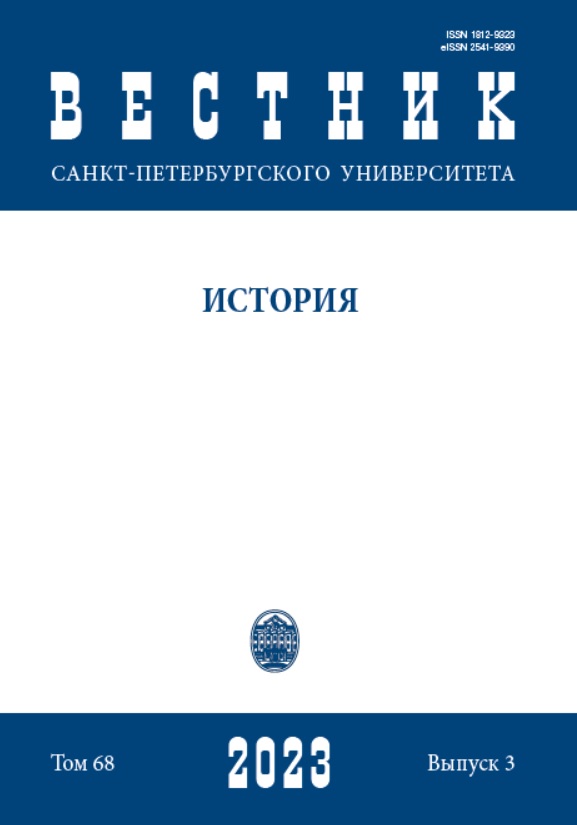Embassy of Prince Kozlovsky and Clerk Ivan Zinoviev
DOI:
https://doi.org/10.21638/spbu02.2023.301Abstract
On the basis of the materials of stateinyi spisok/list of files written by ambassadors Prince S. I. Kozlovsky and by clerk (diak) I. Zinoviev, the article details the history of their diplomatic trip to the Safavid state, in the context of both the realities of Russian-Iranian relations of the time and contemporary internal and foreign political processes in Iran. The source contains unique information: about the cities and towns of Iran, about the capital of the state — Isfahan, about the court of Shah ‘Abbas II, about his nearest circle, about the peculiarities of his life and his dignitaries, about the difficulties of controlling the frontier (the North Caucasus). Since the list of files itself is a kind of report, it duplicates the provisions of the tsar’s order issued to the ambassadors for their mission. A comparison of the data enables to determine the relative success of the embassy. Most of the points of the order were hypothetical in nature. Their implementation was supposed to be due to the initiative of the Iranian side, which did not happen in reality. Among the significant aspects addressed during the negotiations, which involved several rounds, were: the purchase of saltpeter for the sovereign’s treasury, the fate of Russian prisoners, and so on. The materials of the list also reveal secret agents’ activities of the ambassadors, who managed to acquire copies of the actual foreign diplomatic correspondence of Shah ‘Abbas II, previously not known in the Russian historiography.
Keywords:
Russian-Iranian relations of the 19th century, Alexey Mikhailovich, Shah ‘Abbas II, Prince S. I. Kozlovsky, I. Zinoviev, Shamakhi, Isfahan, embassies, missions
Downloads
References
Downloads
Published
How to Cite
Issue
Section
License
Articles of "Vestnik of Saint Petersburg University. History" are open access distributed under the terms of the License Agreement with Saint Petersburg State University, which permits to the authors unrestricted distribution and self-archiving free of charge.





